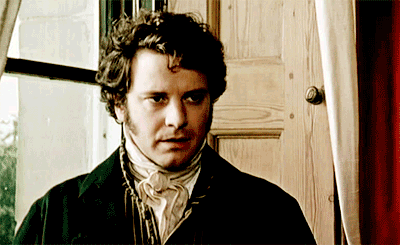The Bluestocking, vol 87: Derangement, Darcy and damp streets
Happy weekend!
The usual cheery subjects this week, I'm afraid. Oh no, wait - there's Mr Darcy. Life isn't all bad.
Helen
It feels like derangement
Black dog. Walking through treacle. Low moods. Nothing I have read of depression has conveyed the crippling weight of it, that is a weight made out of nothing.
I do not have depression according to most authoritative clinical definitions of the condition. Depression is a long-term chronic illness. Mine is unpredictable, and before I got my HRT dose right, it lasted weeks at a time; but usually, these days, it lasts no more than twenty-four hours. My now-and-thens do not qualify as a disease. I do not count as depressed. Instead, I am one of the women of menopause, who struggle to understand why we feel such despair, why now we cry when before we didn’t, why understanding what is left and what is right takes a fraction longer than it used to: all this is “low mood” or “brain fog.” These diminishing phrases, which convey nothing of the force of the anguish or grief that assaults us, are reserved for women and usually relate to menstrual cycles or hormones.
I always enjoy Rose George's writing, and this - on the menopause, and by extension science's lack of understanding of the female body - is no exception.

Tea + Darcy = nngh.
Five Books On Jane Austen
One of the criticisms that has often been levelled at Austen is that she lived during the era of the Napoleonic Wars and she never mentions the wars in her novels. Reading through Pride and Prejudice this time I noticed something that I’d never noticed before. When Elizabeth and Jane come back from Netherfield (when Jane has been sick and Elizabeth has spent a few days with her) the younger sisters are chattering away and giving them the news. It’s typically very trivial – they report that their uncle has entertained the officers, that Colonel Foster is about to be married and that a private was flogged. I thought, how strange that she put that a private was flogged in there – what’s that doing there?
And I started reading up on the matter, and discovered the extraordinary brutality of the British army in that era. I discovered the enormous class difference between ordinary soldiers and their officers, and gradually learned about the militia. The fact is that the militia doesn’t exist except when the country is at war, so the fact that a militia regiment comes to town is in itself a signal that the country is at war.
In effect, nobody notices, because the life of the village, the life of that small community, is so totally engrossing, so totally absorbing to the people in it, that they not only have no perspective about what the world outside it might think, but they don’t even realise that there is danger. When Lydia goes off to Brighton, the reason the militia is at Brighton, it turns out, is because Brighton was the place most likely to be invaded from France. But nobody thinks for a moment that there might be any danger at Brighton, or that something precarious might be going on there. In short, it turns out that the war is there all the time. Part of the point of the book, part of the point about this community in which all judgements are fast and mostly wrong, is that they are simply unaware of what is going on outside. It’s not that Austen is unaware.
Props to Austen scholar Patricia Meyer Spacks for choosing four books by Austen as part of her five books on Austen. But also: high five to this quotation. Austen is a serious political writer, and I will fight anyone who argues that she isn't.
Chaser: An Oxford professor of Shakespeare explains how she thinks most Shakespeare plays are too long. THANK YOU.
Alt-Right Troll to Father Killer: The Unravelling of Lane Davis
If the Ralphs felt guilt over the killing, though, they felt an equal amount of anger and bewilderment. It astounded them that Lane had been serious all along. No one could really believe, they thought, in a Marxist plot to enforce pedophilia with antifa shock troops.
“He completely ruined his life with some stupid internet shit,” Ralph said. “He didn’t get the game.”
“I watch Alex Jones,” Nora told me. “To me, that’s entertainment. We don’t really think the frogs are gay. I don’t think the protein powder works. I never thought some people watch this stuff and are like, yes, this is hard-hitting journalism. I thought most of us could distinguish between entertainment and facts. I never really thought people were stupid enough to get caught up in this stuff.”
Superb reporting from BuzzFeed on a star of the alt-right internet who stabbed his father to death after falling deep down the conspiracy hole. It really nails the horror of an ecosystem half-filled with scammers, who treat it all as a joke, and half with people getting scammed, all pumping out a toxic product.
Chaser: How NOT to cover online conspiracy theorists, by Whitney Phillips, one of my favourite academics working in this area.
Quick links:
How aspiring screenwriters are being scammed by "pitchfests". We could add to that the vast panoply of writing courses, many of which probably never produce a single professional writer.
Lovely thread on what one critic has learned from each of his favourite writers. "Woolf: The constant assessment of how similar or dissimilar you are from other people."
Guest gif: Alleluia.

See you next time!

